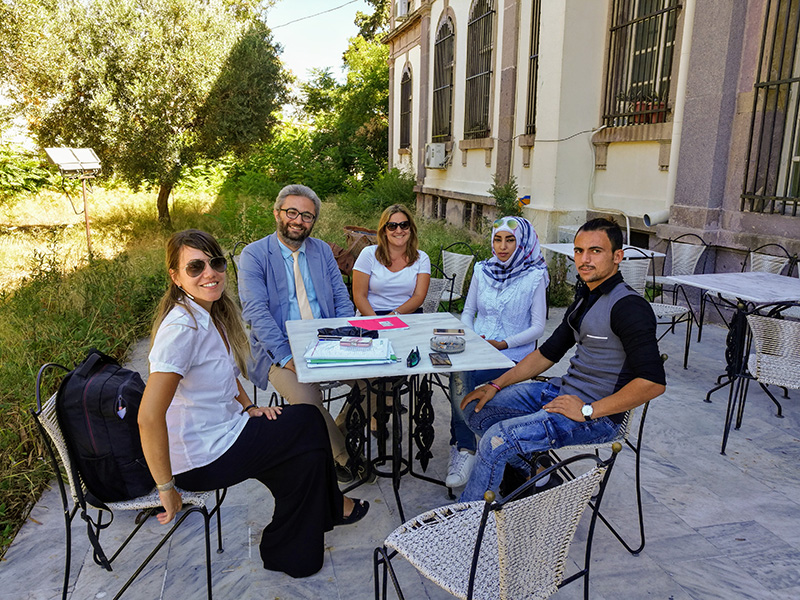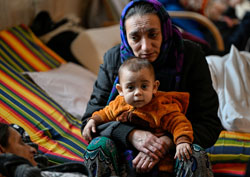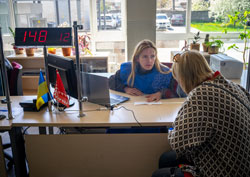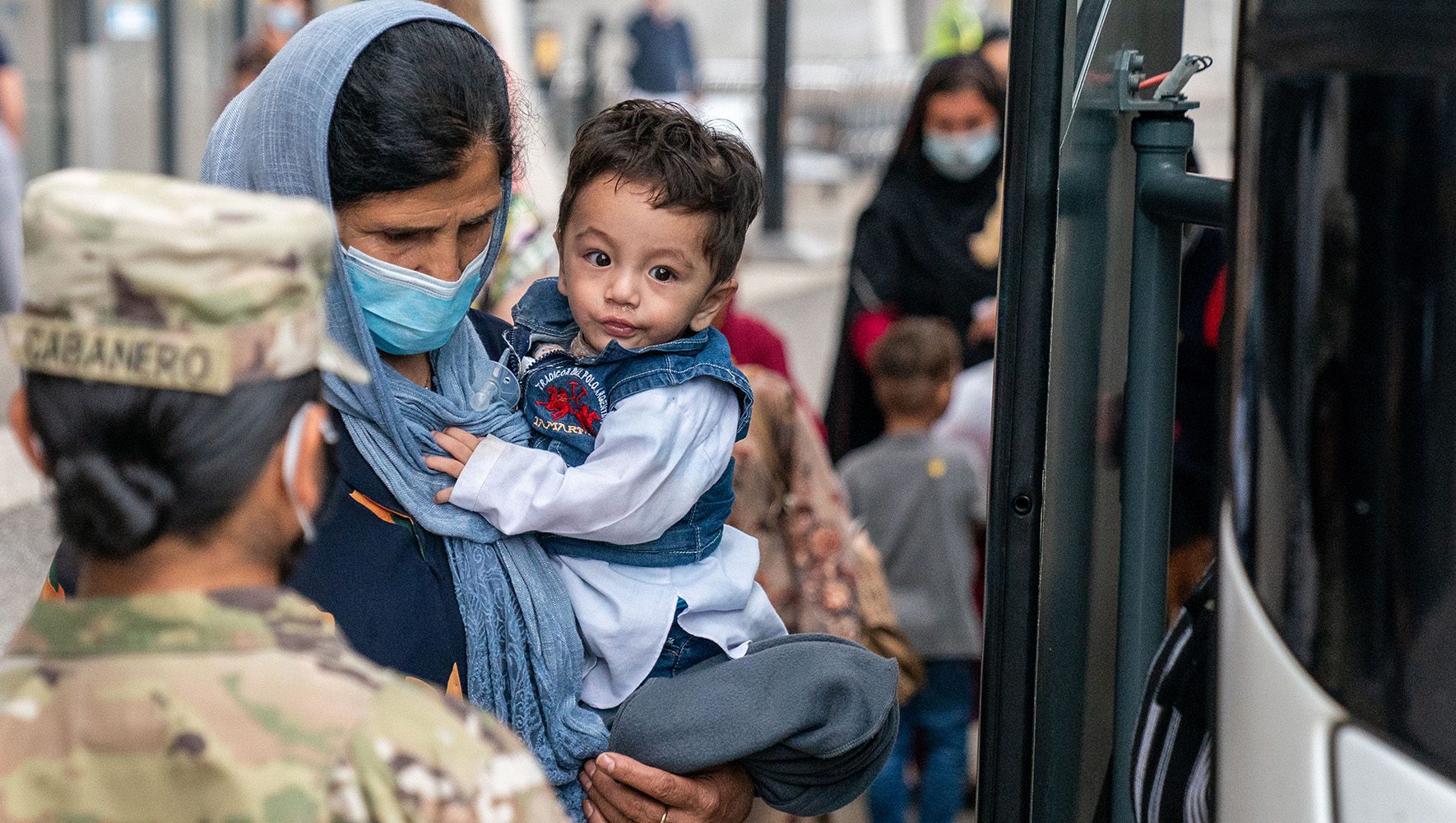HIAS Has A Vision For Refugee Protection In Greece, Says New Country Director
By Gabe Cahn, HIAS.org
Jul 24, 2017

HIAS Greece country director Vassilis Kerasiotis (second from left) and two staff attorneys meet with a refugee couple from Syria (right) in Lesvos, Greece, July 2017.
(HIAS Greece)
Widely seen in 2016 as the frontline of the global refugee crisis, Greece remains home to over 60,000 refugees. Nearly half of this population—primarily from Syria, Iraq and Afghanistan—lives in the Athens area, while an approximately 4,200 refugees live on the island of Lesvos, where HIAS Greece has been providing legal services for the past year.
The refugee population in Greece is made up of new arrivals, whose number has increased during the summer months, and a large number who have now lived in the country for several years.
For HIAS Greece, this reality has presented an opportunity to expand, both geographically and thematically, the successful legal aid operation it started on Lesvos in July 2016.
Starting this summer, HIAS will begin to provide legal services to refugees and continue its advocacy and strategic litigation in Athens, in order to help advance the legal integration of refugees in the country.
“HIAS has a vision in Greece,” says country director Vassilis Kerasiotis, “to offer holistic legal services to refugees and asylum seekers.”
“It’s important to send a message that refugees are not only eating food and sleeping in refugee camps, but that they can live normal lives and contribute to Greek society.”
Kerasiotis, a Greek national, joined HIAS this spring after working for more than a decade as a migration and human rights lawyer in his home country.
Most recently, he was involved in a landmark case defending Bangladeshi migrant workers in Greece. In March 2017, the European Court of Human Rights ruled that the workers were subjected to forced labor in violation of Article 4 of the European Convention, and were subsequently owed nearly 600,000 euros in compensation from the Greek government.
In his first few months as HIAS’ country director in Greece, Kerasiotis and his team have continued to assist refugees by helping them navigate the often-changing asylum procedures, and increasingly, through a coordinated focus on promoting social rights.
Working in and around the refugee camps on Lesvos, and soon in an Athens office, Kerasiotis and his staff are striving to ensure that the minimum guarantees for asylum seekers and refugees set out in the European legal framework are are enacted and upheld by Greek authorities.
To accelerate this process, HIAS Greece is pursuing strategic litigation that could set helpful precedents for the application of refugee rights such as the right to medical care, work, social benefits and access to civil marriage.
At the end of June, Kerasiotis argued a case in the county court of Mytilini on Lesvos as part of the first legal action in Greece seeking a civil marriage license for Syrian refugees. On July 13, the court ruled in favor of the HIAS’ clients and granted them the right to a civil marriage license, opening the door for recognition of other social rights not yet being granted to refugees in the country. The couple will legally marry in early August in the Lesvos municipality.
“It’s another level of recognition,” explained Kerasiotis in regards to civil marriage. “It is also a recognition of the constitutional right of any human being in Greek territory to establish family life according to the European Convention of Human Rights.”
“It shows that it’s not just a right in theory, it’s also something that is applicable in reality.”
Following the positive ruling in the marriage case, Kerasiotis and his colleagues will continue to empower refugees through legal representation, public advocacy and training.
In the past two months, HIAS Greece’s dedicated team of lawyers, interpreters and coordinators has secured refugee recognition for several clients, and starting this summer, delegations of volunteer lawyers will begin arriving for two week missions to help sustain their efforts.
“The people are here, and we must help them here. We must work to try to enforce their rights,” Kerasiotis told HIAS.org.
To stay up to date on HIAS’ work in Greece, follow us on Facebook and Twitter, and sign up for email updates.





